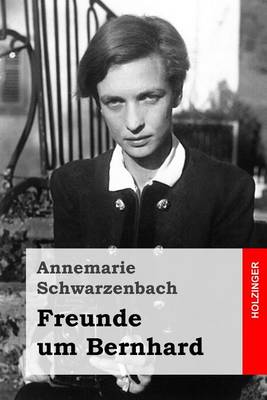
brokentune
Written on Jul 26, 2015
Bernhard is a student who has a talent for playing the piano and making friends with similarly artistically minded youths in the late 1920s. When school finishes, he persuades his family that he should receive musical training in Paris. With the move from Germany to Paris, however, begins Bernhard's journey of life on his own and he has to navigate not only his new home, new acquaintances, and difficulties making a living, he also leaves behind a circle of friends, who seem to be rather lost without him.
Freunde um Bernhard (Bernhard's Friends) is Schwarzenbach's debut novel. Written in 1930/31, Schwarzenbach had to divide her time between writing this novel and writing her PhD, an endeavour which left her close to exhaustion on many an occasion. At the time, Schwarzenbach was only 22, and it continues to astound me that she not only was in a position to submit a postgraduate degree at this point, but also that, by this time, she had already close friendships with Klaus and Erika Mann, both of whom discussed their work with her and critiqued her work. That is, at least the Manns discussed Schwarzenbach's previous novella (Lyric Novella) with her. It seems from the correspondence between Schwarzenbach and Erika, that Erika didn't get to read Bernhard until after it was published (if, indeed, she ever did read it).
Freunde um Bernhard is not a book that thrives on a gripping plot. Rather, it is a coming of age story of the main character Bernhard as well as of each of the friends surrounding him that is based on the development of the relationships between each of the friends. This is not a concept that I expected to work as well as it did, tho, it does require some patience on the part of the reader to bear with the characters. The characters, themselves, i.e. Bernhard and his friends, are well drawn out, even if they are somewhat naive at times. Then again, Schwarzenbach is fully aware of this but also describes to Erika Mann that some of the characters show much of her adolescent self and her own struggles coming to terms with the world around her.
Reading the story, this was fascinating because the set of characters, modeled - no doubt! - not only on the author but also on the relationship with her friends (particularly the Mann siblings) is such a mirror of the generation of its time. A generation of the inter-war years finding it difficult to conform to the societal norms of the previous Wilhelminian Era and trying to build a society of its own, yet, not accustomed to or comfortable with the idea of fully-fledged rebellion.
